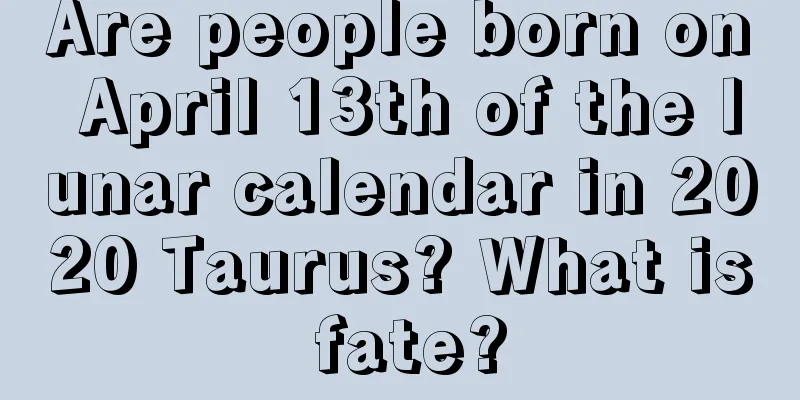What's the significance of the twelfth lunar month? Why is the twelfth month of the lunar calendar called La Yue?

Introduction: The twelfth lunar month is the last month of the lunar calendar, and because there are many important traditional festivals in the twelfth lunar month, there are also many things to pay attention to. So what’s the significance of the twelfth lunar month? Why is the twelfth month of the lunar calendar called La Yue? The Fortune Teller website has prepared a large amount of information about the twelfth month of the lunar calendar for you in the twelfth month. You can always find what you want. Please pay attention to Mr. Shui Mo’s special topic on the twelfth month of the lunar calendar.What's the significance of the twelfth lunar month?Laba Drink Laba CongeeDuring the Ming Dynasty, a few days before Laba, red dates would be pounded and soaked in hot water. On the morning of the eighth day, glutinous rice, ginkgo nuts, walnut kernels, chestnuts, water chestnuts, etc. would be added to cook porridge, which was called "Laba porridge". The porridge starts to be prepared on the seventh night and is ready at daybreak. It is offered to ancestors or friends and should not be eaten after noon. The Han people send each other Laba porridge and "Jicai" at the same time. This was pickled at the beginning of winter. Every family pickles "Laba Garlic" on this day, peels the garlic and soaks it in vinegar, and eats it with dumplings on New Year's Eve. The vinegar is fragrant and the garlic is green, which is unique.On the 23rd day of the lunar year, the Kitchen God ascends to heavenThe 23rd day of the 12th lunar month, also known as "Little New Year", is the day when the Han people worship the kitchen god. The Han people have a custom that "men do not worship the moon, and women do not worship the Kitchen God", so worshiping the Kitchen God is limited to men. Among the folk gods of the Han nationality in China, the Kitchen God is considered to be very old. The Kitchen God had already become a great god revered by the Han people in the Xia Dynasty. Since the Zhou Dynasty, the imperial palace has included the worship of the Kitchen God in its sacrificial ceremonies, established rules for the worship of the Kitchen God throughout the country, and it has become a fixed ritual. In the north, there is a saying that "On the 23rd day of the twelfth lunar month, the Kitchen God goes to heaven." After the whole family offers sacrifices, they remind the Kitchen God: "After he goes to heaven, say more good things and less bad things."24th, sweep the houseThe custom of "dusting and sweeping the house on the 24th day of the twelfth lunar month" has a long history. Also known as "sweeping dust, beating dust, removing residue, and removing dust." According to "Lüshi Chunqiu", the custom of sweeping the house during the Spring Festival has existed in my country since the Yao and Shun era. This custom embodies people's desire to break the old and establish the new and their prayers to bid farewell to the old and welcome the new. A thorough cleaning before the Spring Festival can help prevent infectious diseases and epidemics. It is not only beneficial to physical health, but also adds to the festive atmosphere of bidding farewell to the old and welcoming the new.25. Grind tofuA folk proverb says: "On the 25th day of the twelfth lunar month, people grind the mill to make tofu." The twelfth lunar month is over and spring is back. People have gone through a long winter and are about to enter a new year. According to the folk customs of the Han nationality in China, the Spring Festival is a symbol of "the beginning of a new year". People feel very close to the New Year, and many different local customs have been formed. There is also a saying "paste the windows on the 25th", which means that after sweeping the house on the 24th of the twelfth lunar month, it is time to paste the windows on the 25th. According to old customs, after the Kitchen God ascends to heaven (the 23rd day of the 12th lunar month), the Jade Emperor will personally descend to the mortal world on the 25th day of the 12th lunar month to investigate the good and evil in the world and determine the fortune and misfortune for the coming year. Therefore, every family offers sacrifices to him to pray for blessings, which is called "welcoming the Jade Emperor." On this day, you must be careful about your daily life and words, and strive to perform well in order to please the Jade Emperor and receive blessings for the coming year.26th, go cut the meatA folk proverb of the Han nationality says: "On the 26th day of the twelfth lunar month, pigs are slaughtered and meat is cut for the New Year." It means that this day is mainly used to prepare meat for the New Year. The so-called slaughtering pigs, of course, means killing the pigs raised by one's own family; the so-called cutting meat refers to the poor families who do not raise pigs going to the market to buy meat for the New Year's meal. The reason why "cutting New Year's meat" is included in the New Year's song is that the economy of the farming society was underdeveloped and people could only eat meat during the annual New Year's festival, so it was called "New Year's meat." On the 26th day of the twelfth lunar month, the traditional Chinese Spring Festival custom is "stewing meat".27th, slaughter the roosterThe 27th day of the twelfth lunar month is the eve of Chinese New Year. There is a folk saying that goes, "On the 27th day of the twelfth lunar month, slaughter chickens and go to the market." On this day, every household not only slaughters their own poultry, but also goes to the market and shops to make centralized purchases. Compared with the market on ordinary days where the main purpose is to buy what is in short supply and sell what is in surplus, the market on the 27th day of the twelfth lunar month is mainly for buying and selling New Year items, such as firecrackers, spring couplets, incense and candles, burning paper, beef and mutton, various toys and gifts for children, various head ornaments for girls, etc. On this day, markets everywhere are very busy and lively.28th, let the dough growIn most places, people rush to prepare steamed noodles for the New Year on this day. People in Taiyuan steam "two baskets of cakes and steamed buns"; people in Hebei steam "jujube flowers" as offerings to their ancestors on New Year's Eve; and people in Henan also steam steamed buns and fry guta on the 28th. Only people in Beijing are a step behind, letting the dough rise on this day and waiting until the 29th to steam the steamed buns.29th, steamed buns, New Year's EveIn the past, steaming buns was not done casually, but had to be carefully prepared and done with great care, because the buns would be exchanged with neighbors. Therefore, they had to be both beautiful and delicious, so as to bring face and bring good luck. It was very particular. In the entire New Year festival, the 29th day can be said to be the busiest day. In addition to preparing various food, clothing and sacrificial offerings for the New Year festival, there is also an extremely important activity of "visiting the graves to pray to the ancestors". Therefore, the Nian Yao people say, "On the 29th day of the twelfth lunar month, we visit the graves of our ancestors and ask for great offerings."Stay up all night on the night of 30 to worship ancestors, put up door gods, set off firecrackers, give lucky money, have New Year's Eve dinner, and send off the God of WealthThe 30th day of the twelfth lunar month is also known as New Year's Eve, one of the traditional festivals of the Han nationality. It is held on the last night of the twelfth lunar month every year, and is connected to the Spring Festival (the first day of the first lunar month). The main Han folk activities on this day include ancestor worship, posting door gods, setting off firecrackers, giving out New Year's money, eating New Year's Eve dinner, and sending off the God of Wealth. The word "chu" in "Chuxi" means "to go, to change, to alternate". Chuxi means "the end of the month and the year". People have to get rid of the old and welcome the new. It means that the old year is over and the new year will come. It is the last night of the lunar calendar.Why is the twelfth month of the lunar calendar called La Yue?The twelfth month of the lunar calendar is called "La Yue", which was also called "La Yue" in ancient times. This title has little to do with the natural seasons, but is mainly related to the annual sacrifices. The so-called "La" was originally the name of the sacrifice at the end of the year. Han Ying Shao's "Customs and Meanings" said, "In the Xia Dynasty, it was called Jiaping; in the Yin Dynasty, it was called Qingsi; in the Zhou Dynasty, it was called Da La; and in the Han Dynasty, it was changed to La. La means hunting, which refers to hunting animals to sacrifice to the ancestors." Or it is said, "La means connection, the connection between the old and the new, so a grand sacrifice is held to reward the merits." What is said here, whether it is offering animals to ancestors after hunting, or worshiping gods due to the connection between the old and the new, sacrificial activities are required, so the twelfth lunar month is the "month of sacrifice."Summary: The above content is about [What are the special things to do in the twelfth lunar month? Why is the twelfth month of the lunar calendar called La Yue? 】Problem analysis, hope it can help everyone! |
Recommend
Christmas greetings in English
Christmas is a very important festival for the Wes...
Where is the God of Wealth on the third day of March 2020? What is the Feng Shui of the God of Wealth?
The God of Wealth is a Taoist deity. Where is the...
Fortune telling and personality analysis for girls born on June 5, 2020!
Introduction: Children born on different days have...
How is the fortune of people born in the Year of the Rat in the Little Year? Are they lucky?
Little New Year usually refers to the day of house...
Is it good to be born on May 19th of the lunar calendar in 2022? What is the fate and fortune of boys?
The fifth month of the lunar calendar ushers in th...
What is the date of the New Year's Eve in 2021? What is the meaning of eating New Year's Eve dinner on New Year's Eve
Introduction: New Year's Eve is the last day o...
Can I move house on June 26th of the lunar calendar in 2020? Is it suitable to move into a new home?
The sixth month in the lunar calendar is the firs...
Can I pray on the last 30th day of February 2020?
Can I pray on the last 30th day of February 2020? ...
Is it suitable to pick up the car on the 29th day of the first lunar month in 2019?
When the first month of the lunar year arrives, e...
Will Gemini have good luck with noble people on May Day 2022? Personality Analysis
Gemini is one of the twelve constellations. So, le...
Is April 30th of the lunar calendar in 2018 a suitable day to go to the temple to burn incense and pray?
Introduction: Burning incense and praying for bles...
Is today, the third day of March 2019, the Shangsi Festival, a suitable day to burn incense and pray for blessings?
Is today, the third day of March 2019, the Shangsi...
Is December 25th of the lunar calendar in 2020 an auspicious day for opening a business?
Is December 25th of the lunar calendar in 2020 an...
Can I register for a marriage certificate on the Winter Solstice in 2018? What is the process for marriage registration?
A marriage certificate is a legal document issued ...
Who can celebrate Women's Day in 2020? Is it necessary to give a gift?
Sometimes, gifts are indispensable to maintain the...









